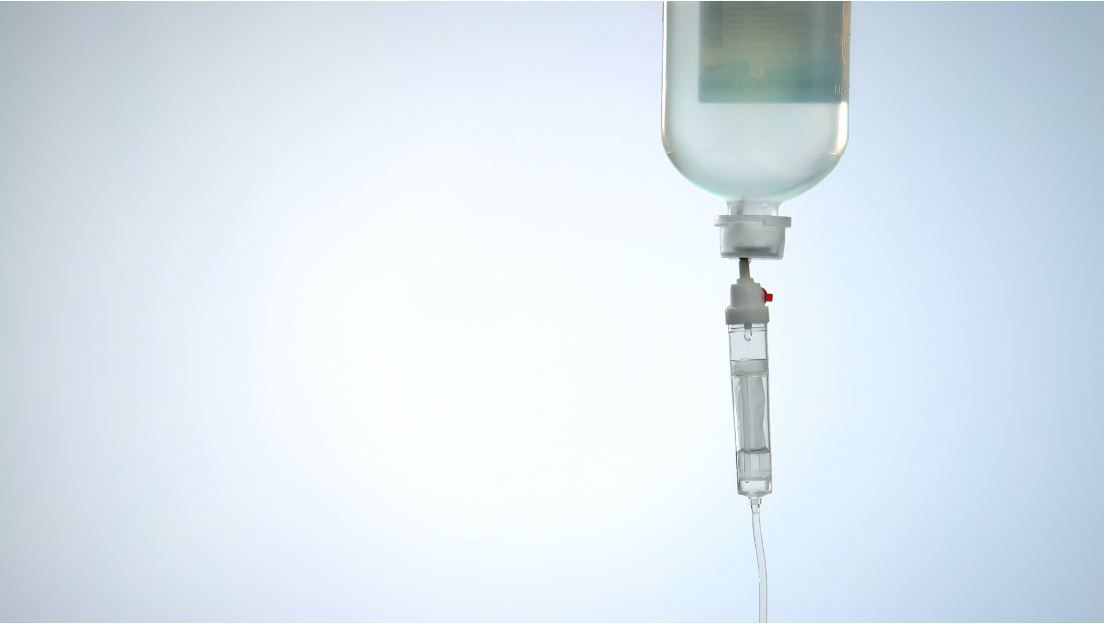- Clinical Technology
- Adult Immunization
- Hepatology
- Pediatric Immunization
- Screening
- Psychiatry
- Allergy
- Women's Health
- Cardiology
- Pediatrics
- Dermatology
- Endocrinology
- Pain Management
- Gastroenterology
- Infectious Disease
- Obesity Medicine
- Rheumatology
- Nephrology
- Neurology
- Pulmonology
Remdesivir Bests Placebo in Time to Recovery from COVID-19
The recovery rate of patients with severe COVID-19 infection who received remdesivir was 31% faster than those in a placebo group, according to the NIH.
The investigational antiviral remdesivir is administered intravenously for 10 days.
The investigational antiviral remdesivir is administered intravenously for 10 days.

Hospitalized patients with advanced COVID-19 infection who received remdesivir had a 31% faster time to recovery than those who received placebo, according to analysis of preliminary data from the first randomized clinical trial in the US to evaluate an experimental treatment for the disease caused by the SARS-CoV-2 virus. The announcement was made in a press release from the National Institutes of Health (NIH) on April 29, 2020.
The trial, involving 1063 patients, is known as the Adaptive COVID-19 Treatment Trial (ACTT) and sponsored by the National Institute of Allergy and Infectious Diseases (NIAID), part of the National Institutes of Health. The study began on February 21, 2020.
The study's primary endpoint, time to recovery, was defined as being well enough for hospital discharge or returning to normal activity level. Compared with a median of 15 days to recovery for patients who were randomized to receive placebo, patients receiving intravenous remdesivir achieved the endpoint at 11 days, 31% faster than those who did not receive the drug (p<.001).
The mortality rate among remdesivir recipients was 8.0% vs 11.6% for the placebo group (p=0.059), a finding that suggests a survival benefit with the investigational drug, according to the NIH release.
An independent data and safety monitoring board (DSMB) overseeing the trial met on April 27 to review data and shared their interim analysis with the study team.More comprehensive data from the trial will be available in a forthcoming report, according to the news release.
Remdesivir is developed by Gilead Sciences Inc., and is an investigational broad-spectrum antiviral treatment administered via daily infusion for 10 days. FDA has been in sustained discussions with Gilead regarding making remdesivir available to patients as quickly as possible and as appropriate. This could come in the form of an Emergency Use Authorization from the Agency.
The trial closed to new enrollments on April 19 but is an "adaptive" trial that allows for incorporation of additional investigative treatments. NIAID will provide information going forward on plans for the ACTT trial.
The first trial participant in the ACTT trial was an American who was repatriated after being quarantined on the Diamond Princess cruise ship that docked in Yokohama, Japan, and volunteered to participate in the study at the first study site, the University of Nebraska Medical Center/Nebraska Medicine, in February 2020. A total of 68 sites ultimately joined the study—47 in the United States and 21 in countries in Europe and Asia.
